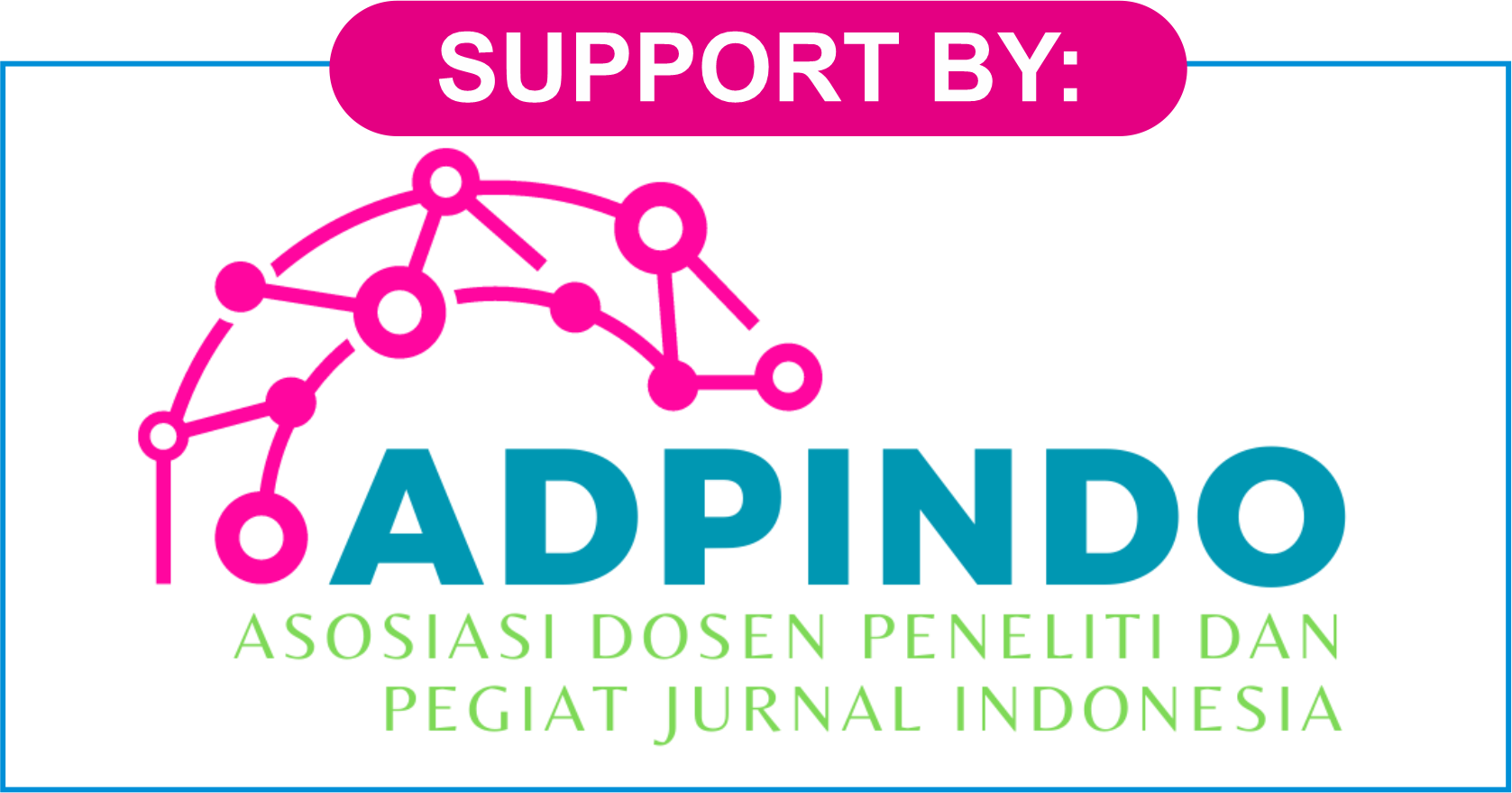CORRELATION BETWEEN TIME PERSPECTIVE WITH SUBJECTIVE WELL-BEING AMONG OLDER ADULTS WHO HAD LOSS A SPOUSE
DOI:
https://doi.org/10.47353/sikontan.v2i4.1020Keywords:
time perspective, subjective well-being, older adults who had loss a spouseAbstract
Individuals aged 60 years experience many changes during the aging process such as physical and social changes. The influence of the aging process often causes various problems, event that has most serious impact on older adults well-being is the death of a spouse. This research aims to determine the correlation between time perspective and subjective well-being among older adults who had loss a spouse. This research used a quantitative approach with Spearman’s rho correlation test analysis. This research was conducted to a sample of 83 widowhood older adults who had loss their spouses. The results shows that there is a relationship between time perspective and subjective well-being with a coefficient on past positive dimensional is 0,697, past negative dimensional is -0,550, present hedonism dimensional is 0,626, present fatalistic dimensional -0,475, and future dimensional is 0,520. Based on the results it can be concluded that each dimension of time perspective is related to subjective well-being.
Downloads
References
Amarya, S., Singh, K., & Sabharwal, M. (2018). Ageing Process and Physiological Changes. In G. D’Onofrio, A. Greco, & D. Sancarlo (Eds.), Gerontology. InTech. https://doi.org/10.5772/intechopen.76249
Åström, E., Rönnlund, M., Adolfsson, R., & Grazia Carelli, M. (2018). Depressive symptoms and time perspective in older adults: Associations beyond personality and negative life events. Aging & Mental Health, 23(12), 1674–1683. https://doi.org/10.1080/13607863.2018.1506743
Badan Pusat Statistik. (2022). Statistik Penduduk Lanjut Usia 2022. https://www.bps.go.id/publication/2022/12/27/3752f1d1d9b41aa69be4c65c/statistik-penduduk-lanjut-usia-2022.html
Chan, S. M., Kwok, W. W., & Fung, T. W. (2019). Psychometric properties of the Zimbardo time perspective inventory in Hong Kong adolescents. Time & Society, 28(1), 33–49. https://doi.org/10.1177/0961463X16678250
Cunningham, K. F., Zhang, J. W., & Howell, R. T. (2015). Time Perspectives and Subjective Well-Being: A Dual-Pathway Framework. In Time Perspective Theory; Review, Research and Application (pp. 403–415). Springer International Publishing.
Desmyter, F., & De Raedt, R. (2012). The Relationship Between Time Perspective and Subjective Well-being of Older Adults. Psychologica Belgica, 52(1), 19. https://doi.org/10.5334/pb-52-1-19
Diener, E. (1984). Subjective Well-Being. Psychological Bulletin, 542–575.
Diener, E., Emmons, R. A., Larsen, R. J., & Griffin, S. (1985). The Satisfaction With Life Scale. Journal of Personality Assessment.
Diener, E., Wirtz, D., Tov, W., Kim-Prieto, C., Choi, D., Oishi, S., & Biswas-Diener, R. (2009). New Well-being Measures: Short Scales to Assess Flourishing and Positive and Negative Feelings. Social Indicators Research, 97(2), 143–156. https://doi.org/10.1007/s11205-009-9493-y
Ismalinda, W., Nauli, F. A., & Dewi, A. P. (2014). HUBUNGAN KEBERADAAN PASANGAN HIDUP DENGAN HARGA DIRI PADA LANSIA.
Košťál, J., Klicperová-Baker, M., Lukavská, K., & Lukavský, J. (2016). Short version of the Zimbardo Time Perspective Inventory (ZTPI–short) with and without the Future-Negative scale, verified on nationally representative samples. Time & Society, 25(2), 169–192. https://doi.org/10.1177/0961463X15577254
Kourkouta, L., Ch, I., & Monios, A. (2015). Psychosocial Issues in Elderly. Progress in Health Sciences, 232–237.
Lyubomirsky, S., King, L., & Diener, E. (2005). The Benefits of Frequent Positive Affect: Does Happiness Lead to Success? Psychological Bulletin, 131(6), 803–855. https://doi.org/10.1037/0033-2909.131.6.803
Măirean, C., & Diaconu-Gherasim, L. R. (2019). Adolescents’ subjective well-being: The role of adolescents’ and mothers’ time perspectives. Time & Society, 28(3), 1084–1104. https://doi.org/10.1177/0961463X17752282
Martín-María, N., Miret, M., Caballero, F. F., Rico-Uribe, L. A., Steptoe, A., Chatterji, S., & Ayuso-Mateos, J. L. (2017). The Impact of Subjective Well-being on Mortality: A Meta-Analysis of Longitudinal Studies in the General Population. Psychosomatic Medicine, 79(5), 565–575.
Mehue, D., Rantetampang, A. L., & Sandjaja, B. (2016). Factors Affecting Depression to Old Age at Rehabiliy Old Age and Home Family Registered Health Primary Sentani Jayapura Regency Papua Province. International Journal of Sciences, 30(5).
O’Brien, E. (2022). Look Back, Not Ahead? Time Use and the Value of Revisiting Past Experiences. In Temporal Asymmetries in Philosophy and Psychology (pp. 62–89). Oxford University Press.
Riset Kesehatan Dasar. (2018). Laporan Riset Kesehatan Dasar Riskesdas. https://www.litbang.kemkes.go.id/laporan-riset-kesehatan-dasar-riskesdas/
Sailer, U., Rosenberg, P., Nima, A. A., Gamble, A., Gärling, T., Archer, T., & Garcia, D. (2014). A happier and less sinister past, a more hedonistic and less fatalistic present and a more structured future: Time perspective and well-being. PeerJ, 2, e303. https://doi.org/10.7717/peerj.303
Sessiani, L. A. (2018). Studi Fenomenologis tentang Pengalaman Kesepian dan Kesejahteraan Subjektif pada Janda Lanjut Usia. Sawwa: Jurnal Studi Gender, 13(2), 203. https://doi.org/10.21580/sa.v13i2.2836
Srivastava, S., Debnath, P., Shri, N., & Muhammad, T. (2021). The association of widowhood and living alone with depression among older adults in India. Scientific Reports, 11(1), 21641. https://doi.org/10.1038/s41598-021-01238-x
Stolarski, M., Fieulaine, N., & Van Beek, W. (Eds.). (2015). Time Perspective Theory; Review, Research and Application: Essays in Honor of Philip G. Zimbardo. Springer International Publishing. https://doi.org/10.1007/978-3-319-07368-2
Undang-Undang Republik Indonesia No. 13. (1998). Undang-Undang Republik Indonesia Nomor 13 Tahun 1998 Tentang Kesejahteraan Lanjut Usia. Pemerintah Pusat. https://peraturan.bpk.go.id/Home/Details/45509/uu-no-13-tahun-1998
Von Humboldt, S., Leal, I., & Pimenta, F. (2015). Sense of Coherence, Sociodemographic, Lifestyle, and Health-related Factors in Older Adults’ Subjective Well-being. International Journal of Gerontology, 9(1), 15–19. https://doi.org/10.1016/j.ijge.2014.01.007
Wiesmann, U., Ballas, I., & Hannich, H.-J. (2018). Sense of Coherence, Time Perspective and Positive Aging. Journal of Happiness Studies, 19(3), 817–839. https://doi.org/10.1007/s10902-017-9850-5
World Health Organization. (2015). World report on ageing and health. World Health Organization. https://apps.who.int/iris/handle/10665/186463
Zimbardo, P. G., & Boyd, J. N. (1999). Putting time in perspective: A valid, reliable individual-differences metric. Journal of Personality and Social Psychology, 77(6), 1271–1288. https://doi.org/10.1037/0022-3514.77.6.1271
Downloads
Published
How to Cite
Issue
Section
License
Copyright (c) 2024 Isti Ayu Lestari, Nurul Hartini

This work is licensed under a Creative Commons Attribution 4.0 International License.











